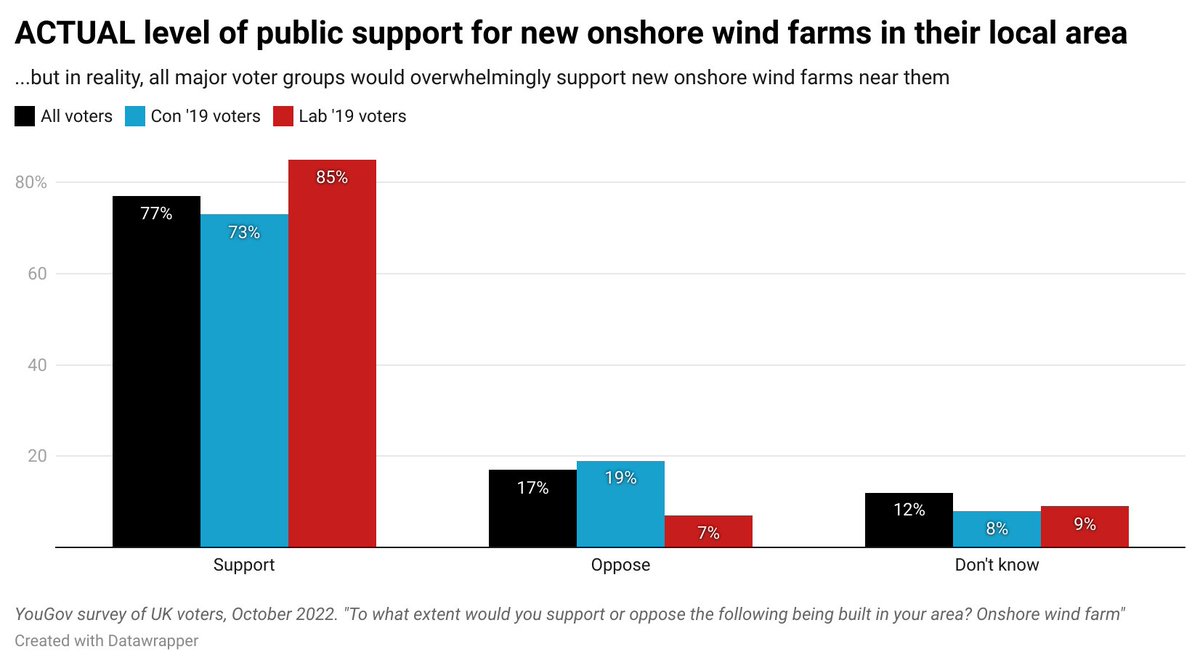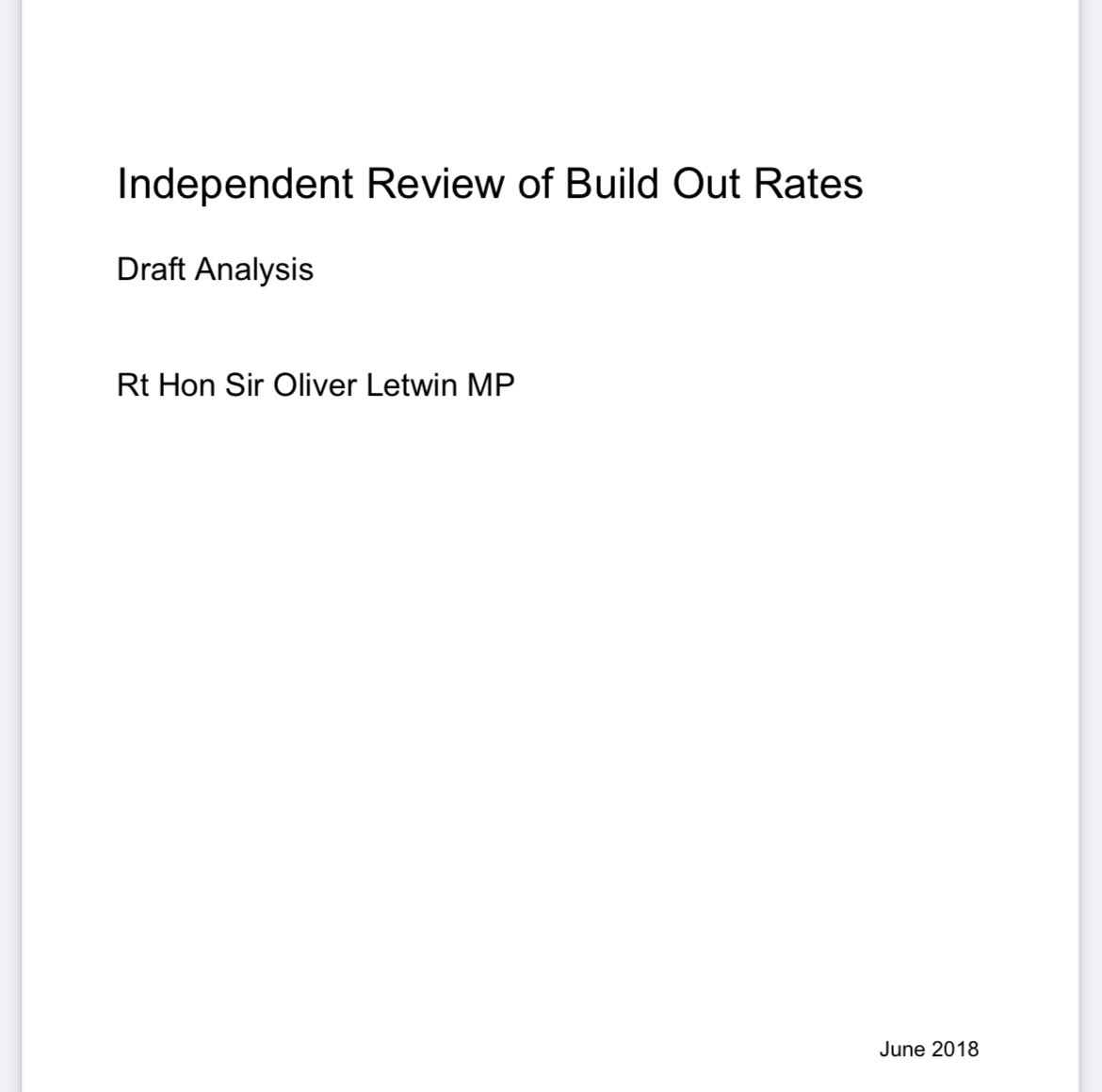How do views of UK MPs on climate change compare to the public? In short, there's a few alarming gaps.
A quick thread on new polling with @ECIU_UK, plus a few thoughts (some hope and some despair!) #ukclimate #cop27egypt 👇🧵
A quick thread on new polling with @ECIU_UK, plus a few thoughts (some hope and some despair!) #ukclimate #cop27egypt 👇🧵
Methodology: two polls via @YouGov in October 2022:
- one poll of 103 MPs, weighted to be representative of party, region, length of service etc
- one poll of 1,800 UK adults
MP surveys are never perfect methodologically, but YouGov do a really good job of them.
- one poll of 103 MPs, weighted to be representative of party, region, length of service etc
- one poll of 1,800 UK adults
MP surveys are never perfect methodologically, but YouGov do a really good job of them.
Firstly, the good news is there's broad agreement between MPs of all parties and voters on the problem of climate change and support for Net Zero.
They all want to see UK global leadership - one for the UK team at #COP27!


They all want to see UK global leadership - one for the UK team at #COP27!



On issue salience, climate is voters' third biggest issue.
MPs aren't far off this. But immigration (for Cons), housing and crime (for Lab MPs) punching above its weight wrongly pushes it down the ranking of what MPs think voters prioritise.

MPs aren't far off this. But immigration (for Cons), housing and crime (for Lab MPs) punching above its weight wrongly pushes it down the ranking of what MPs think voters prioritise.


Con MPs view the threat of climate change as less proximate, but do still see it as a threat to the world and future generations.
(NB i can't break out SNP or Lib Dem MPs because the sub-samples are too small, pls don't shout at me)
(NB i can't break out SNP or Lib Dem MPs because the sub-samples are too small, pls don't shout at me)

Where worrying gaps start to open up is on energy sources, especially onshore wind.
Offshore, hydro and nuclear enjoy net support among MPs of both main parties and the public.
But Con MPs are net negative to onshore wind (-2%), while the public are +61%. Why?
Offshore, hydro and nuclear enjoy net support among MPs of both main parties and the public.
But Con MPs are net negative to onshore wind (-2%), while the public are +61%. Why?

Well, in part because Con MPs quite significantly misjudge even their own party voters' attitudes to onshore wind.
Con MPs estimate Con '19 voters to have a net favourability of -41% towards onshore wind.
It's actually +50%!
Con MPs estimate Con '19 voters to have a net favourability of -41% towards onshore wind.
It's actually +50%!

This makes 64% of Conservative MPs feel that a majority of their constituents would oppose a new local onshore wind project.
But we know this isn't true! It's supported by massive majorities.
As we've seen, this misperception leads to harmful policy outcomes.

But we know this isn't true! It's supported by massive majorities.
As we've seen, this misperception leads to harmful policy outcomes.


It also likely bleeds into the gap between some Con MPs and the public when you force a choice on the energy security debate.
(btw the lead the 'green' argument has v.s the fossil fuel case has grown month-on-month this year, with voters of all parties)
(btw the lead the 'green' argument has v.s the fossil fuel case has grown month-on-month this year, with voters of all parties)

TL;DR on this + other myths eg 'Red Wall voters don't care about climate': the problem's not voter attitudes to climate action. There's been big shifts. Idk what else we can reasonably ask of the public.
The problem is elite perceptions of voter attitudes haven't caught up.
The problem is elite perceptions of voter attitudes haven't caught up.
Clearly some MPs *are* out of touch.
But it's not worth being partisan about it. There's many excellent Con MPs on climate & @CEN_HQ do a superb job.
A lot of this is growing structural problem with *who* MPs hear from most. I wrote about it here fwiw strongmessagehere.substack.com/p/the-engageme…
But it's not worth being partisan about it. There's many excellent Con MPs on climate & @CEN_HQ do a superb job.
A lot of this is growing structural problem with *who* MPs hear from most. I wrote about it here fwiw strongmessagehere.substack.com/p/the-engageme…
Ultimately as campaigners we have to shift this dynamic. I love polling obviously but it only goes so far.
An idea its worth funders looking at on renewables: infrastructure to mobilise those in favour of onshore wind, to at least even-out the mailbags of MPs/Cllrs.
An idea its worth funders looking at on renewables: infrastructure to mobilise those in favour of onshore wind, to at least even-out the mailbags of MPs/Cllrs.
Very lastly, just as an aside, it was good to have my suspicions confirmed on the messaging divide.
Co-benefit climate messages do best with elites, while broader themes do best with voters.
(Respondents saw a sentence or two on each message. Higher score = more convincing)
Co-benefit climate messages do best with elites, while broader themes do best with voters.
(Respondents saw a sentence or two on each message. Higher score = more convincing)

Anyway, many thanks to @politico for covering the wind angle of this today, and @AnushkaAsthana for mentioning it briefly in her onshore package for ITV too.
YouGov will publish the tables but if anyone wants them before then do DM me.
politico.eu/newsletter/lon…
YouGov will publish the tables but if anyone wants them before then do DM me.
politico.eu/newsletter/lon…
• • •
Missing some Tweet in this thread? You can try to
force a refresh


















